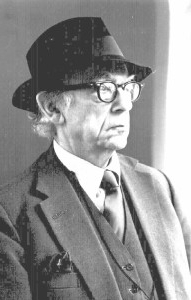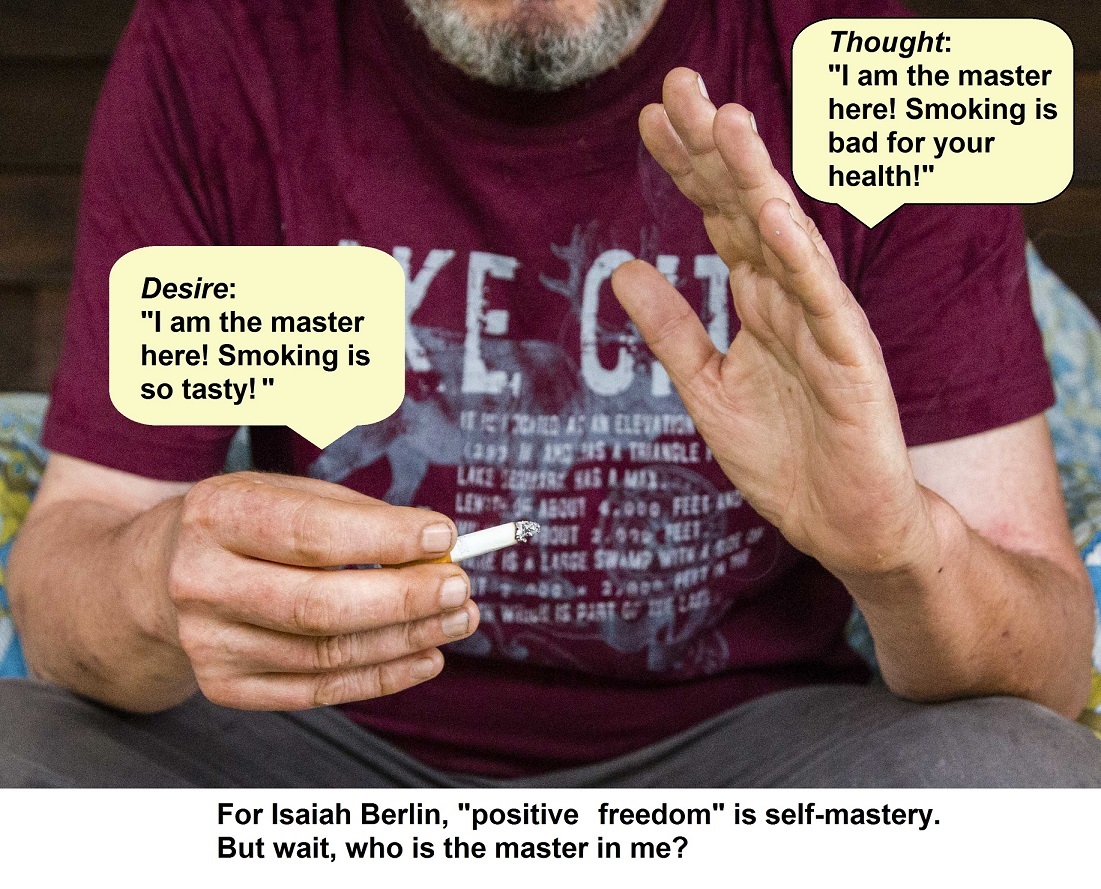|
Freedom from and freedom to Sir Isaiah Berlin (1909-1997) grew up in Latvia and Russia, but because of anti-Semitism his Jewish family moved to Britain in 1921. He became a philosophy professor at Oxford University, and is popularly known for his essay “Two concepts of liberty.”
The following passages are adapted from a famous essay by Isiah Berlin, "Two Concepts of Liberty," delivered at Oxford University in England in 1958, and published later. The essay has been influential in Anglo-American philosophy, especially in discussions of social and political philosophy. Berlin distinguishes between two senses of freedom: First, negative freedom, or “freedom from,” which is absence of external interference (absence = negative). Second, positive freedom, or “freedom to,” which is autonomy or mastery over yourself. He argues that each of them has a long history in human thought, and that they are both necessary values.
Almost every moralist in human history has praised freedom. Like happiness and goodness, like nature and reality, the meaning of this term is so vague that there aren’t many interpretations that it seems able to resist. I do not propose to discuss either the history of this word, or the more than two hundred senses of this word, recorded by historians of ideas. I propose to examine no more than two of these senses – but those are central senses, with a great deal of human history behind them... Negative freedom (freedom from interference)
area is limited by other men beyond a certain minimum, I can be described as being forced, or, it may be, enslaved. … By being free in this sense I mean not being interfered with by others. The wider the area of non-interference, the wider my freedom…
Positive freedom (freedom as self-mastery) The “positive” sense of the word “liberty” derives from the individual’s wish to be his own master. I wish my life and my decisions to depend on myself, not on external forces of whatever kind. I wish to be the instrument of my own acts of will, not of other men’s. I wish to be a subject, not an object; to be moved by reasons, by conscious purposes which are my own, not by causes which affect me from outside. I wish to be somebody, not nobody; a doer — deciding, not being decided for, self-directed and not acted upon by external nature or by other men as if I were a thing, or an animal, or a slave incapable of playing a human role. In other words, I wish to be somebody who conceives goals and policies of his own and realizes them. […] “I am my own master”; “I am slave to no man”; but may I not be a slave to nature [=natural tendencies]? Or to my own “uncontrolled” passions? … Haven’t people had the experience of liberating themselves from spiritual slavery, or from slavery to nature? And in the process, don’t they become aware of a self which dominates, and on the other hand of something in them which is being dominated? This dominant self is then identified with reason, with my “higher nature,” with the self which calculates and aims at what will satisfy it in the long run, with my “real” or “ideal” or “autonomous” self, or with my self “at its best.” And this self is then contrasted with irrational impulses, uncontrolled desires, my “lower” nature, the pursuit of immediate pleasures, my “empirical” or “heteronomous” self which is swept by every gust of desire and passion, which needs to be rigidly disciplined in order to rise to the full height of its “real” nature.
|
When you subscribe to the blog, we will send you an e-mail when there are new updates on the site so you wouldn't miss them.


 I am normally said to be free to the degree to which no human being interferes with my activity. Political liberty in this sense is simply the area within which a person can act unobstructed by others. If I am prevented by other persons from doing what I could otherwise do, I am to that degree unfree. And if this
I am normally said to be free to the degree to which no human being interferes with my activity. Political liberty in this sense is simply the area within which a person can act unobstructed by others. If I am prevented by other persons from doing what I could otherwise do, I am to that degree unfree. And if this This is at least part of what I mean when I say that I am rational, and that my reason distinguishes me as a human being from the rest of the world. I wish, above all, to be conscious of myself as a thinking, willing, active being, and to bear responsibility for my choices, and to be able to explain them by reference to my own ideas and purposes. I feel free to the degree that I believe this to be true, and I feel enslaved to the degree that I realize that it is not true.
This is at least part of what I mean when I say that I am rational, and that my reason distinguishes me as a human being from the rest of the world. I wish, above all, to be conscious of myself as a thinking, willing, active being, and to bear responsibility for my choices, and to be able to explain them by reference to my own ideas and purposes. I feel free to the degree that I believe this to be true, and I feel enslaved to the degree that I realize that it is not true.